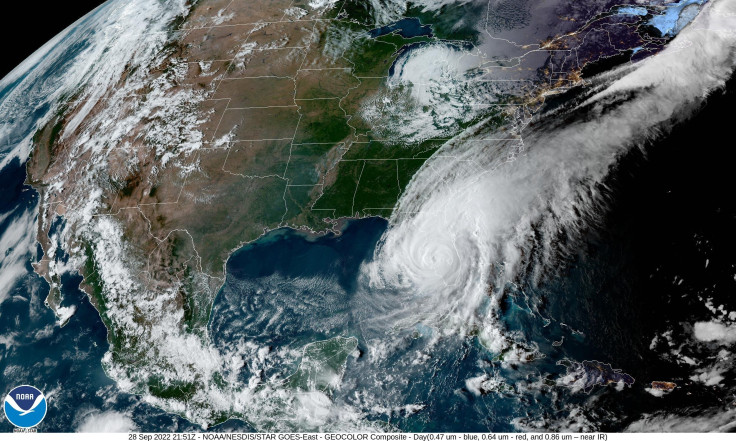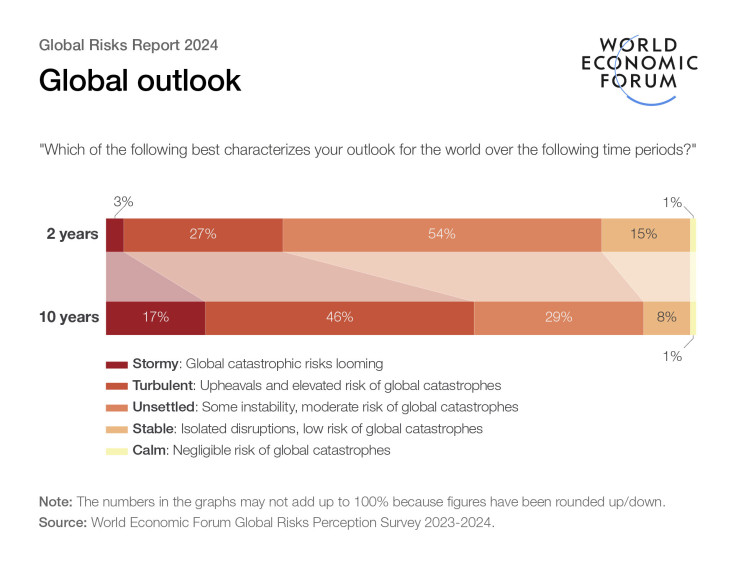
The world is grappling with an array of interconnected challenges, some of which pose risks in the short and longer term, according to the World Economic Forum's Global Risks Report 2024.
Based on insights from nearly 1,500 global experts, the report paints a grim picture of a planet facing a dual crisis of climate change and conflict amid the backdrop of rapid technological advancements and economic uncertainty.
Survey respondents expressed a notable lack of optimism, with 54% foreseeing significant instability and moderate global catastrophe risks. An additional 30% anticipate an even bleaker scenario, foreseeing impending global turmoil and a "stormy" or "turbulent" period within the next two years. Extending the outlook to a decade, a staggering 63% predict a tumultuous world order by 2034.

Climate-related risks feature prominently in the report, with extreme weather events topping the list as an immediate threat. The overarching concern revolves around the world's unpreparedness for triggering long-term and potentially irreversible changes to planetary systems. The report notes that these changes could occur before reaching the anticipated 1.5°C global warming threshold, expected by the early 2030s.
However, the most severe short-term threat identified in the 2024 report is misinformation and disinformation. Fueled by the potential misuse of artificial intelligence, experts worry about the manipulation of global information systems with false narratives. Over the next two years, the report foresees foreign and domestic actors exploiting these tactics to widen societal and political divides, especially during the numerous elections scheduled for 2024 and 2025.

The consequences of misinformation and disinformation extend beyond societal division, potentially leading to civil unrest and government-driven censorship, the report adds. It also warns of the looming possibility of controls on the free flow of information and the rise of domestic propaganda.
Examining a 10-year horizon, climate-related risks account for five of the top ten threats, particularly as the world approaches or surpasses "climate tipping points." While the immediate threat lies in extreme weather events, opinions differ on the urgency of other climate-related risks, such as biodiversity loss and ecosystem collapse. Younger respondents express higher concern, raising fears that delaying mitigation efforts could lead to irreversible damage.
The report underscores the diminishing trust, political polarization, and a volatile geopolitical landscape, placing global cooperation under strain. It suggests that solutions may arise from more localized cooperation among nations, corporations, and individual citizens.
However, given the enormity of economic, political, and environmental challenges, it report emphasizes that cross-border collaboration remains critical for decisive risks affecting human security and prosperity.
© 2025 Latin Times. All rights reserved. Do not reproduce without permission.





